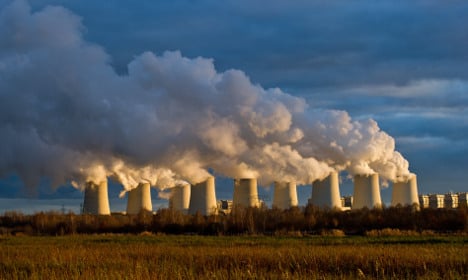The conservative newspaper Svenska Dagbladet said the state-owned firm had “completely hit the wall”, not least for its German subsidiary, while the centre-left paper Aftonbladet said it was an “arrogant environmental villain.”
It’s no secret that Vattenfall has based its profitable German business on dirty coal-fired electricity generation. But last year profits collapsed, prompting business newspaper Dagens Industri to report the matter with the headline “Vattenfall’s foreign billion slap.”
The €1.8-billion loss incurred with the purchase of Dutch gas firm Nuon in 2009 was matched by a similar amount that will “go up in smoke” in Germany thanks to the move away from nuclear power and the mandatory sale of its electricity network, the paper said.
Even Vattenfall’s communications chief in Stockholm, Ivo Banek admitted, “one can barely explain in Sweden why we have to depend on brown coal in Germany.”
Yet managers at the German unit tell Swedish headquarters that it needs the income from brown coal – supposedly in order to invest in renewable energy.
Another divide between Swedish and German sensibilities concerns nuclear power. In Sweden, Vattenfall is involved in building new nuclear power stations, while in Germany they are all set to be shut down.
The drop-off in profits from Germany has prompted some Swedish politicians to float the idea of selling off the subsidiary. “It is hopeless for a state company to follow Swedish rules on climate policy here in Sweden, but in Germany to follow that of German politicians,” said Carl B. Hamilton, economic policy spokesman for the Liberal Party. He said he hoped Vattenfall Germany could be sold off at a good price.
“The debate is absolutely relevant, whether we become a regional Scandinavian provider again rather than an international company,” said Vattenfall spokesman Banek.
DPA/The Local/hc



 Please whitelist us to continue reading.
Please whitelist us to continue reading.
Member comments